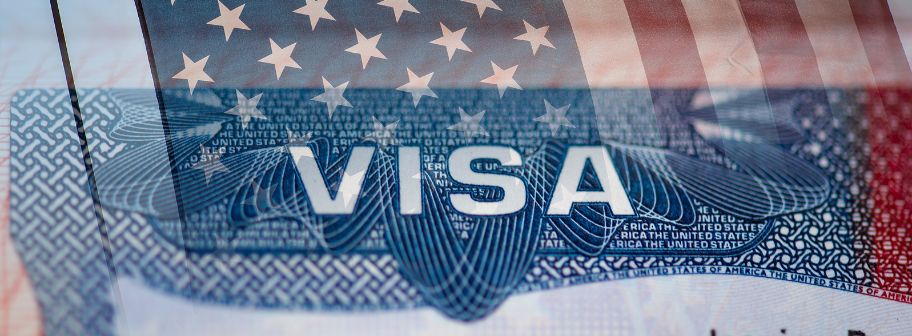For every immigrant the most important step in the quest of become a US Citizen through naturalization is getting a green card first. However, the path to become a permanent resident is narrowly tailored because you need a familiar petition for an US citizen/Legal Permanent Resident or a working visa to become an immigrant, being admitted, and receive your green card later. However, family and work are not the only choice in the quest for the green card, there also other bizarre ways who can help someone to achieve this important goal, a green card lottery, and asylum.
Quest to residency through family
The most common way to emigrate to United States is through a familiar petition, a US citizens’ right to help his/her spouse, parents, sons and daughters, even siblings to obtain a green card and becoming legal permanent residents. For spouses, unmarried children under 21 years of age, and parents the time processing is very short because they are immediate relatives and have priority regarding processing. For unmarried son and daughters over 21 years of age of US Citizen and US Citizen’s siblings the time processing may last for several years. The same applies for spouses and children of Legal Permanent residents. Every month the Bureau of consular affairs issue a visa bulletin where they establish the priority date and the quota of applications establishing family sponsored preferences: The first preference is for unmarried sons and daughters of US citizen, the second presence is for spouse and children, and unmarried sons and daughters of Permanent residents, the third preference is for married sons and daughters of US citizen and finally the four preference is for brothers and sisters of adult US citizens. For these reasons, it is strongly suggested to Legal Permanent Residents to get naturalized if they want to reunite their family soon.
Quest to residency through working visas
Also, there is another way to get a green card is through a working visa. There are two scenarios. First, when an employee has a nonimmigrant visa like a h1-B visa and change it to an EB-1 or EB-2 visa that is an immigrant worker visa. For this case it is necessary a job certification, meaning the employer has to qualify and help employee with the petition. Another way is when the applicant has extraordinary abilities that are national interest waiver of the job offer requirement.
Kazarian v. USCIS, 596 F.3d 1115, 1121-22 (9th Cir. 2010) 1, has a two prong to evaluate evidence for petitions for aliens of extraordinary ability. 1) Determining whether the petitioner has submitted the required evidence that meets the parameters for each type of evidence listed at the rule in the application; and 2) Determine whether the evidence submitted is sufficient to demonstrate that the beneficiary or self petitioner meets the required high level of expertise for the extraordinary ability immigrant classification during a final merits determination.
Getting a green card through a lottery?
It sounds too pretty to be truthful, but it is true, the reality is that limited countries have the right to participate in this great sweepstake. Off course, it is a reduced number compared to the amount of applications received by familiar petitions because this lottery approves approximately 55,000 visas, but the advantage is that a foreign citizen from the listed countries in the visa bulletin has a chance to be one of the selected approved visas. Thus, have a chance to become a legal permanent resident of US.
What about asylum, can I become a resident if I am persecuted in my country?
The answer is yes, but the path is not simple because applicant has to make a strong showing of his persecution, the motives of such persecution and that the foreign country is unable of protect him. These elements made part of a well-founded fear presumption that can be rebutted if in the foreign country the condition has changed to the extent that he has no longer fear to be persecuted.
In re C-Y-Z 23 I&N Dec. 693 (A.G. 2004) 2, an alien’s spouse was forced to sterilization and the applicant alleged persecution and apply to be eligible for asylum in the absence of changed country conditions. The court held that forced abortion and sterilization is a form of persecution and applicant met the threshold of the well-founded past and future fear presumption since the country’s condition has not changed. Matter of Chang, 20 I&N Dec.38 (BIA 1989) also, held that resistance to a coerced population control program is a form of persecution.
There are other forms of persecutions, like being part of a social group and be persecuted by joining that group or being part of a different ethnicity or religion and be persecuted for such reason. In re O-Z- & I-Z-, 22 I&N Dec. 23 (BIA 1998) 3, the applicants were persecuted on the basis of their Jewish nationality and in the absence of changed country conditions, they were eligible for asylum.
I got a notice of removal; do I still have a chance to get a green card?
Yes, if you are facing deportation but your immediate relative has filed a petition for you, you still have a chance to cancel your removal and obtain a green card. Under INA 240A (b)(1) in order to qualify for cancellation of removal you must meet the following requirements:
- Continuous physical presence for 10 years prior to NTA (notice to appear in court).
- No convictions during that period.
- Good moral character.
- An exceptional and extremely unusual hardship to relatives.
However, if you has been convicted of an offense listed under section 212 (a)(2), 237(a)(2) or 237(a)(3) at any time while you have been in the states, you are automatically disqualified to the procedure for cancellation of removal.
In Figueroa v Mukasey, No. 05-75157, 9th cir. 2008 4, the applicant had two children with special needs and health issues; so, getting parents deported would represent a extremely hardship for the citizen children. Here, the court held that the IJ failed to analyze how removal would affect the citizen-children and reversed the decision.
However, this kind of decisions are very discretionary, the judges evaluate the positive and negative factors related to the applicant and decide on a case by case basis.
In conclusion, the quest for residency depends if your case fit between one of the situations described above. Therefore, if you were persecuted but also you came with a nonimmigrant visa, overstayed and eventually got married, it may be most recommended to go for a family petition and requesting a waiver for the unlawful physical presence instead of applying for an asylum that represent a strong showing and the possibility to be removed if application is denied.
Resources :
1 https://www.nafsa.org/uploadedFiles/kazariandecision.pdf
2 https://www.justice.gov/sites/default/files/eoir/legacy/2014/07/25/3319.pdf
3 https://www.justice.gov/sites/default/files/eoir/legacy/2014/07/25/3346.pdf




